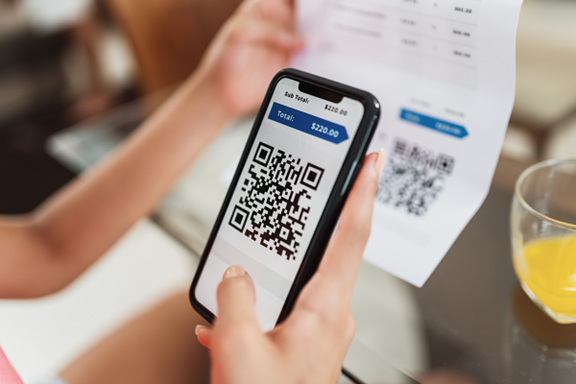QR codes are now ubiquitous in everyday life. You can spot them on restaurant menus, advertisements, and posters, seamlessly bridging the gap between offline and online interactions. They’re incredibly simple to use just scan with your smartphone camera, and you’re quickly directed to a website, a discount, a video, or other digital content.
However, the surge in QR code usage also brings a shadowy side. Cybercriminals are taking advantage of this technology for malicious activities. Fraudsters craft counterfeit QR codes to steal your data, install harmful software on your device, or trick you into making unauthorized payments.
It’s essential to be cautious when scanning QR codes. This rising threat serves as a reminder of the hidden risks behind those seemingly harmless patterns.

The QR Code Resurgence
QR codes were originally designed for tracking parts in the automotive industry. Over time, they’ve undergone a significant transformation and are now widely used in marketing efforts.
Their main appeal lies in providing quick access to information with just a scan. This convenience has made them a vital tool across many sectors, such as retail and hospitality.
However, cybercriminals are not far behind. A new phishing scam has surfaced, preying on the trust we place in QR codes for malicious purposes.
How the Scam Works
The scammer prints a counterfeit QR code and places it over a legitimate one. For instance, they might stick it on a flyer promoting a product discount or a movie.
When you scan the fake QR code, you’re unknowingly directed to a phishing site. These sites often prompt you to input sensitive information, such as credit card details, login credentials, or other personal data.
In some cases, scanning the code may cause a malicious app to be downloaded, one that carries malware capable of:
- Monitoring your activity
- Accessing your clipboard history
- Viewing your contacts
- Locking your device until a ransom is paid
Alternatively, the code could lead to a payment page, tricking you into paying for something that’s supposed to be free.
Stay alert for these warning signs to protect yourself.
Malicious Codes Concealed
Cybercriminals manipulate authentic QR codes by placing fake QR code stickers over them. These counterfeit codes often contain harmful content or lead unsuspecting users to deceptive websites.
Fake Promotions and Contests
Scammers frequently exploit QR codes to entice users into fake offers or competitions. Once users scan the code, they might be redirected to a fraudulent website that asks for personal details. This could result in identity theft or financial scams.
Malware Distribution
Certain harmful QR codes trigger the download of malware onto the user’s device, posing serious security risks. This can lead to unauthorized access to personal information and may cause significant damage to the device’s performance.
Stay Vigilant: Tips for Safe QR Code Scanning
Verify the Source
Exercise caution when scanning QR codes from unfamiliar or unreliable sources. Always confirm the authenticity of the code and where it originates from, particularly if it requests personal details.
Use a QR Code Scanner App
Consider using a specialized QR code scanning app instead of relying on your device’s default camera. Many third-party apps offer additional security features, like code analysis and website reputation checks, to help protect you.
Inspect the URL Before Clicking
Before accessing a website through a QR code, carefully examine the URL to ensure it matches the official website of the organization it claims to be linked to.
Avoid Scanning Suspicious Codes
Trust your gut. If a QR code seems off, avoid scanning it. Scammers often prey on curiosity, so be extra cautious when encountering QR codes in public spaces. Steer clear of codes that appear suspicious, damaged, or altered. Prioritize caution to stay safe.
Update Your Device and Apps
Ensure your device’s operating system and QR code scanning apps are always up to date. Regular updates typically include security fixes that guard against identified vulnerabilities.
Be Wary of Websites Accessed via QR Code
Avoid entering personal details, such as your address, credit card information, or login credentials, on websites accessed via QR codes.
Refrain from making payments or donations through QR codes. Always rely on secure and trusted payment methods.
Contact Us About Phishing Resistant Security Solutions
QR codes can be convenient and enjoyable, but they also carry risks if not handled properly. Always approach them with caution to avoid falling victim to scammers who exploit your curiosity.
This type of scam is a form of phishing, one of the most significant threats facing both individuals and organizations today. If you need assistance securing your devices against phishing attacks, we’re here to help.
Reach out to us today to find out more.
